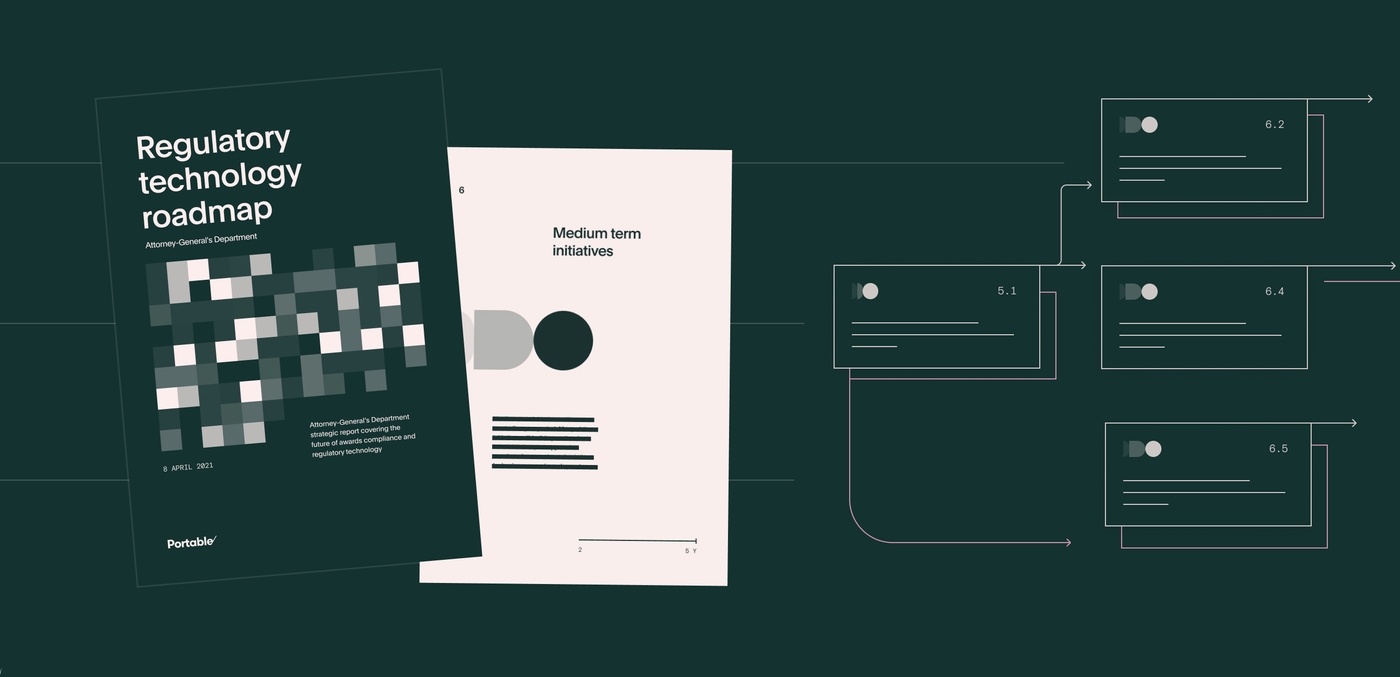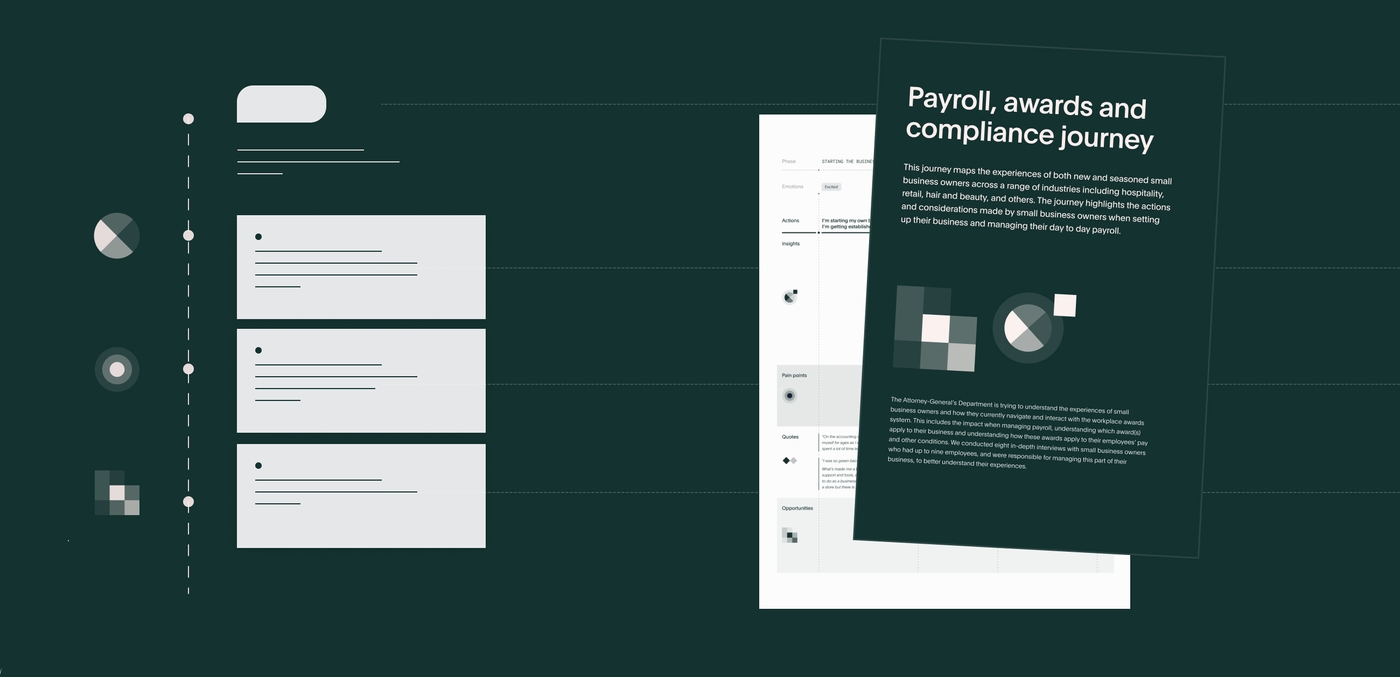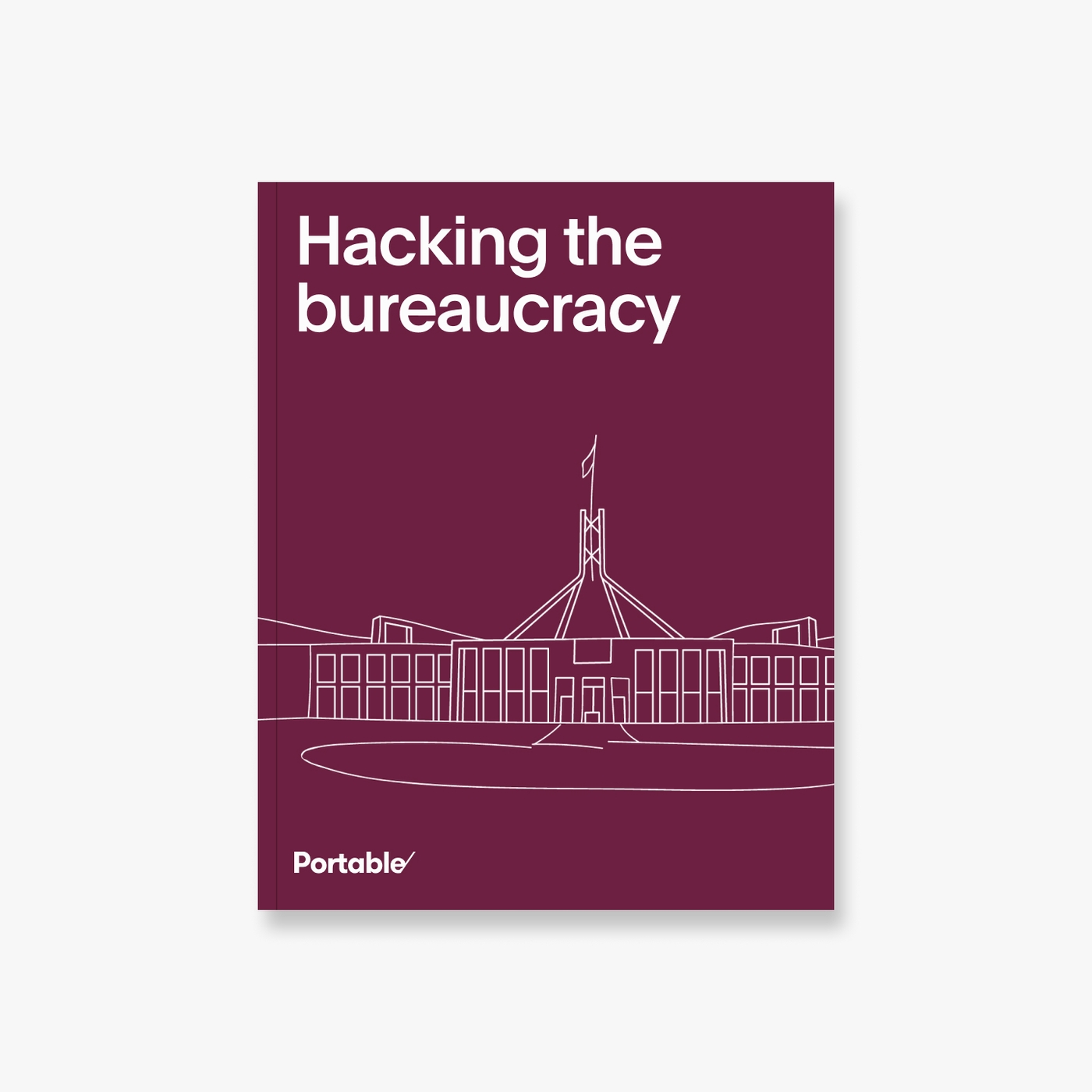At Portable, we’re passionate about helping government organisations understand the needs of the stakeholders involved in complex policy or technology shifts, and working with them to drive better outcomes for their staff and the people they serve. We’ve worked with federal, state, and local government departments to map out the nuances of their policy environments, and used our expertise in technology to help build capability and create opportunities for new tools and frameworks. We also have specific experience in working to use human-centred design to realise better outcomes in the justice sector and are committed to improving processes and provide a better UX for citizens accessing justice and government departments providing legal services or conforming to legal standards.
The Attorney-General’s Department engaged us to understand whether regulatory technology (also known as RegTech) and in particular to explore whether technology solutions that aid in legal compliance could improve compliance with employment legislation and awards, specifically for small businesses.
In Australia, up to 2.2 million workers are directly paid under the award system across 121 modern awards. Our challenge was to understand the current issues faced by small businesses when complying with these awards. We also needed to look into the ways in which regulatory technology could form part of the solution, and what role government could play to support this.

Approach
Our approach was split into two phases, understanding the problem and finding the right solution.
Understanding the problem
The first phase involved conducting eight in-depth interviews with small business owners. We spoke with owners from a range of industries, with varied experiences and financial responsibilities within their business. Using this research, we created an initial insights report and journey map, which led us into the second phase of the project.
During the interviews, we were aiming to understand:
- How small businesses operated and changed over time
- The role that payroll and awards played within a business
- What resources, tools and advisors small business owners use to understand and meet their awards obligations
- Payroll and awards obligations for the different stages of employment i.e. hiring, or ending employment

Finding the right solution
We began the second phase by conducting stakeholder ideation workshops, to help us to define and prioritise key pain points, ideate solutions, and guide the initial development of a regulatory technology strategic roadmap. We used a combination of primary research, interviews with key government stakeholders, industry bodies, software companies and academia, and secondary research to develop this roadmap.
Outcomes
The roadmap covered the requirements, benefits, risks, challenges and potential outcomes of each initiative. It also highlighted key dependencies and suggested direction for the government in order to help improve awards compliance through the use of regulatory technology.
Our research uncovered the needs of those impacted by awards, including small businesses and employees, and those who use and interact with awards, such as government and software providers.
Using this research, we were able to create a strategic roadmap covering the short, medium and long term initiatives that the government could enable to support and improve compliance with awards. Ranging from the creation of APIs and technological infrastructure, to make awards information more usable, to encouraging the use of regulatory technology across businesses to guide the Department forward on their next steps.
John Richards, Assistant Director, Usability Team, Attorney-General’s Department:
“We were pleased to work with that team at Portable through the regulatory technology co-design process to produce an evidence-based roadmap of potential approaches to support innovation that assists businesses to better understand and comply with their modern awards obligations.”
Matt Dalla Rosa, Senior Design Strategist, Portable:
“We were able to engage with a wide range of subject matter experts to uncover the intricacies of employment legislation and their relationship to regulatory technology. We were able to build on these sessions, taking insights from one interview to help us dive deeper in another, based on previous learnings. Ultimately this made the final roadmap more grounded in reality and provided clear areas to explore further as regulatory technology develops in the awards space.”
Download our report on hacking the bureaucracy
